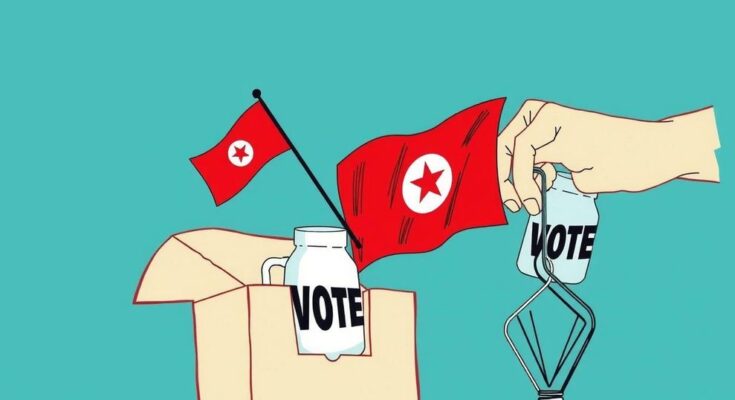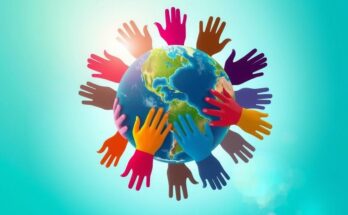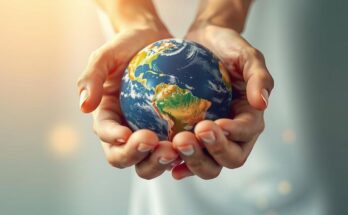Tunisia’s recent elections showcased troubling dynamics, with Kais Saied declared president amid a mere 28% voter turnout and significant human rights violations. The political landscape is increasingly restricted, with a crackdown on opposition and media stifling civic engagement. Laws stripping judicial authority and arresting dissenters raise serious concerns about political freedoms in the country.
The recent presidential elections in Tunisia marked a pivotal moment, being the first since the adoption of a new constitution in 2022. However, with a shocking participation rate of just 28%, it raised concerns over the legitimacy of the process. Incumbent president Kais Saied was declared the winner with an overwhelming 90.69% of the vote amidst serious allegations of human rights violations, obscuring the integrity of the electoral environment. The Tunisian Constitution guarantees essential rights, including freedom of expression and the right to vote, rooted in international treaties like the ICCPR and ACHPR. These instruments obligate Tunisia to protect civic space and enable citizens to exercise their voting rights fully. Yet, systemic crackdowns on civil liberties and judicial undermining starkly violate both domestic and international human rights laws. Leading up to the elections, Saied’s administration aggressively stifled civic engagement and opposition. The electoral landscape was heavily restricted, as only two candidates were permitted to compete, while 14 others were disqualified. Many potential opposition figures faced imprisonment under questionable circumstances, raising alarms about the nation’s direction toward autocracy and limited democratic choice. In a surprising turn, the Administrative Court reinstated three candidates disqualified earlier by the Independent High Authority for Elections (ISIE). However, the ISIE quickly dismissed this decision, claiming procedural issues, as the parliament hastily enacted legislation diminishing the court’s authority over electoral disputes, redirecting such matters to a court perceived as aligned with Saied’s regime. President Saied’s government has effectively muzzled civic discourse, leading to a transformation of Tunisia’s political landscape from vibrant to muted. Journalism has deteriorated significantly, with multiple journalists imprisoned for their work. Efforts to observe elections were systematically obstructed, and significant protests met with mass arrests, particularly targeting opposition supporters, thus raising alarms about the state of human rights and civil freedoms. Legal obligations to protect civic space and judicial independence remain paramount in Tunisia. Collective calls from civil societies demand the dismissal of charges against activists and the liberation of imprisoned journalists. Moreover, international oversight bodies like the African Union and the UN must engage to ensure Tunisia complies with its human rights commitments, safeguarding civic spaces against encroachment. In summary, Tunisia’s electoral process under Kais Saied reflects significant challenges. Despite constitutional promises, an environment apprehensive of dissent stifles authentic political participation, threatening the fragile democratic structures established in previous years.
The backdrop of Tunisia’s electoral context is rooted in the post-revolution landscape established after 2011, which saw the promise of democracy and civil liberties. The implementation of a new constitution in 2022 was intended to fortify these rights. However, the electoral process that followed raised serious concerns regarding the government’s commitment to safeguarding the democratic framework amidst rising authoritarianism.
The intricate dance between rights and repression during Tunisia’s elections highlights the fragility of its democracy. As civic spaces dwindle and judicial independence gets compromised, it imposes an urgent call to action for international stakeholders to support and monitor the accountability of Tunisia in preserving human rights. The future of Tunisian democracy hangs in the balance, reliant on both local resilience and global solidarity.
Original Source: rfkhumanrights.org



